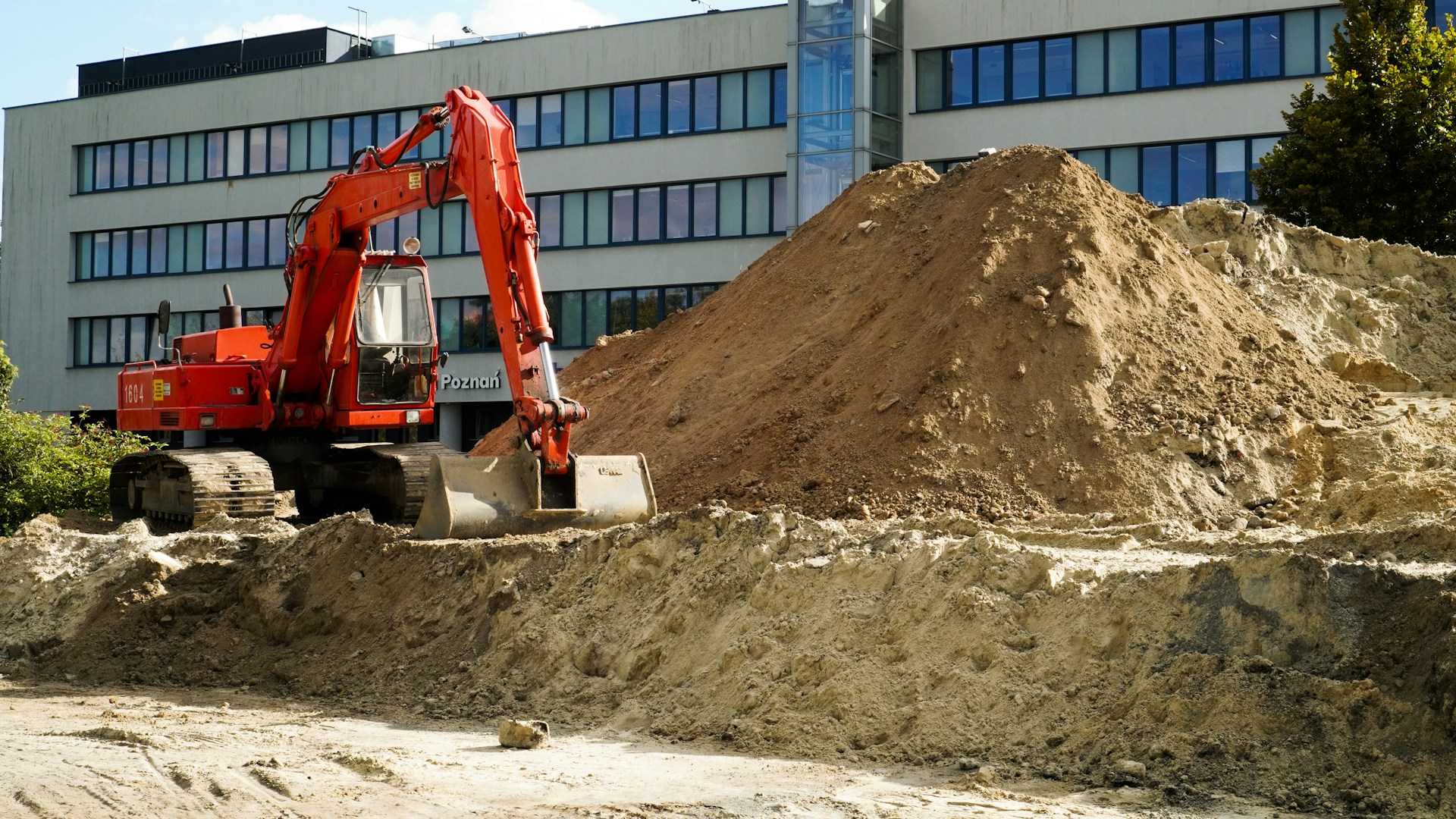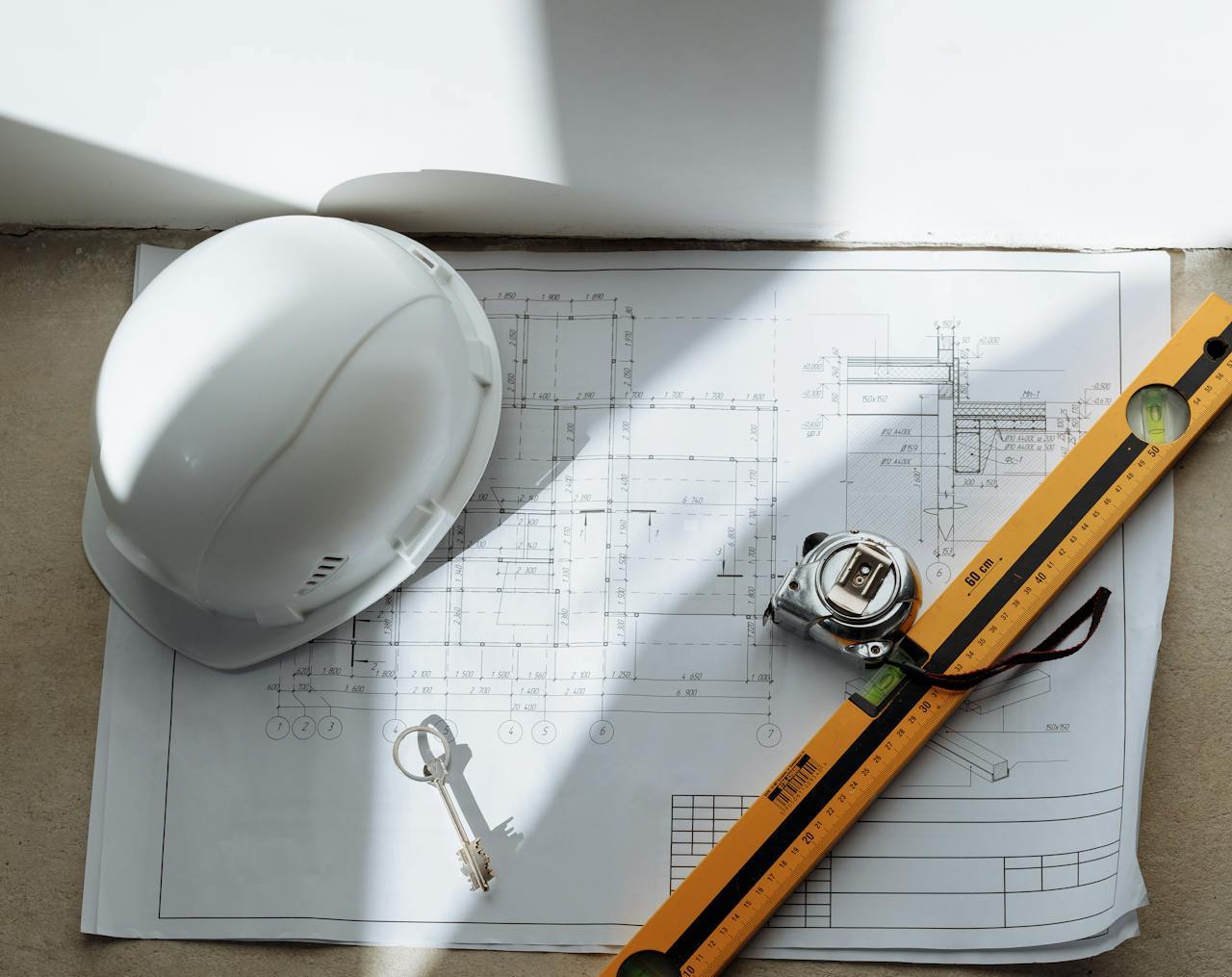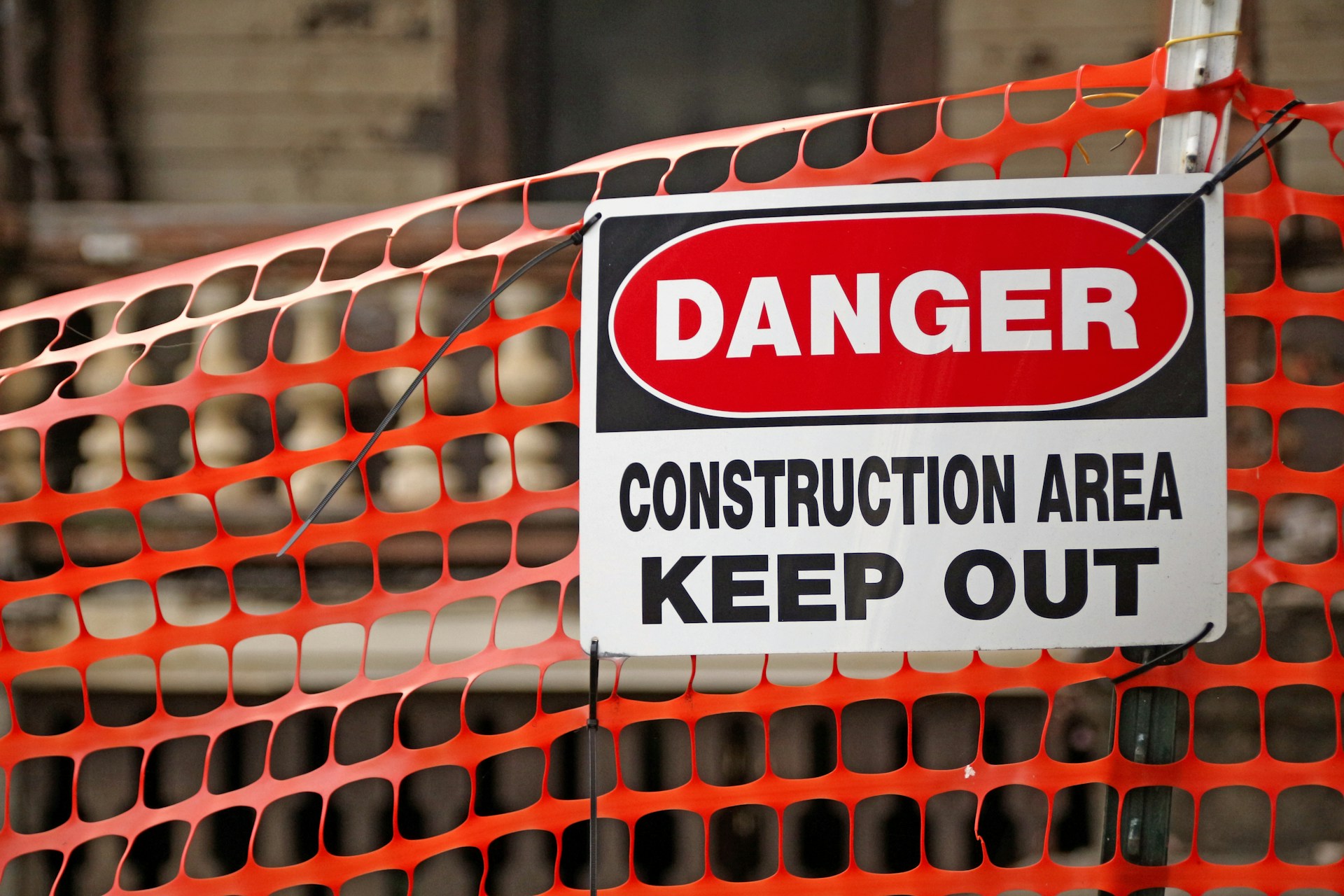Phased construction offers a strategic solution for businesses aiming to expand or renovate without halting operations. This approach divides large commercial projects into smaller, more manageable segments. Instead of addressing the entire build at once, we complete each phase sequentially, allowing areas to be occupied before moving on to the next stage.
For companies focused on maintaining productivity during construction, phased building has become increasingly popular. We’ve observed how this method provides greater flexibility and control over costs while minimizing disruptions to day-to-day business activities. It’s especially valuable for projects with tight timelines or budget constraints.
The key advantage of phased construction is its ability to keep businesses operational throughout the build process. By carefully sequencing work and coordinating with facility managers, we can ensure critical functions remain uninterrupted. This incremental approach also allows for easier financing, as costs are spread over time rather than requiring a large upfront investment.
While phased construction requires meticulous planning and coordination, the benefits for operating businesses are clear. It enables companies to grow and improve their facilities without sacrificing current productivity or revenue streams. For many of our clients, this balanced approach has proven essential in achieving their expansion goals while maintaining business continuity.
What Are the Key Benefits of Phased Construction for Businesses?

Phased construction offers significant advantages for businesses needing to maintain operations during renovation or expansion projects. This approach has proven particularly beneficial for our diverse clientele. Here are the key benefits:
Minimizes Disruption to Daily Operations
Phased construction allows businesses to operate with minimal interruption. By strategically sequencing tasks, specific areas remain accessible and functional throughout the project. For instance, when renovating a hotel, we might update floors or wings sequentially, allowing the property to continue hosting guests in unaffected areas. Similarly, in retail spaces or hospitals, phased construction enables ongoing critical functions while improvements are underway.
Enhances Cost Control and Cash Flow Management
Phased construction offers greater financial flexibility, spreading costs over the project timeline rather than requiring a large upfront investment. This approach allows for improved cash flow management, with funds allocated to each phase as needed. We collaborate closely with clients to develop a phasing plan that aligns with their budgetary constraints and financial projections, mitigating financial risks.
Offers Flexibility for Design Modifications
This approach also enables design adjustments as the project progresses. Completing initial phases allows stakeholders to provide feedback that informs subsequent stages. This iterative process ensures the final outcome truly meets business needs. For example, in a multi-phase office renovation, lessons from early phases about employee workspace preferences can be incorporated into later phases.
Enables Early Occupancy and Revenue Generation
Phased construction accelerates the timeline for businesses to start using and potentially generating revenue from completed areas. This is particularly advantageous for commercial developments or expansions where time-to-market is crucial. Clients have greatly benefited from this approach, especially in retail or mixed-use projects where initial phases can open while work continues on later stages.
By leveraging these benefits, we assist our clients in navigating complex projects while maintaining operational continuity and financial prudence. Phased construction’s ability to minimize disruption, control costs, adapt flexibly, and expedite revenue makes it an attractive option for businesses undertaking substantial construction projects.
| Benefit | Description |
|---|---|
| Minimizes Disruption | Allows businesses to maintain operations during construction by dividing projects into phases. |
| Enhanced Cost Control | Facilitates better cash flow management by splitting costs across the project timeline. |
| Flexibility and Adaptability | Permits design modifications through feedback from initial phases, leading to improved final outcomes. |
| Early Occupancy | Enables parts of a project to be completed and occupied sooner, allowing for earlier revenue generation. |
| Improved Cash Flow Management | Lessens the need for large upfront investments, supporting businesses with tighter budgets. |
| Sustained Interest and Market Prices | Helps maintain market interest and control prices by aligning with current market conditions. |
What Industries Best Utilize Phased Construction Approaches?
While phased construction can benefit any organization undertaking a significant building project, certain industries find it particularly valuable due to their unique operational requirements. We have observed that healthcare, manufacturing, retail, and education are the sectors that most effectively leverage this approach. Let’s explore how these industries implement phased construction to maintain critical functions while upgrading their facilities:
Healthcare Facilities
For hospitals, clinics, and nursing homes, patient care is the top priority. Phased construction allows these facilities to:
- Maintain uninterrupted patient services
- Upgrade critical areas like operating rooms or emergency departments in stages
- Minimize exposure to construction-related disruptions for vulnerable patients
- Gradually introduce new technologies and equipment without a complete facility shutdown
We often work with healthcare administrators to develop highly detailed phasing plans that prioritize patient safety and comfort throughout the renovation process.
Manufacturing Facilities
Production floors are the lifeblood of manufacturing operations. Phased construction helps these facilities:
- Keep production lines running to meet order deadlines
- Upgrade equipment and infrastructure without halting entire operations
- Schedule work around shift patterns, often utilizing nights and weekends
- Implement new technologies or layouts in stages to minimize disruption
Our team collaborates closely with production managers to ensure construction activities align with manufacturing schedules and safety protocols.
Retail and Service-Oriented Businesses
Customer experience is paramount in retail environments. Phased approaches allow these businesses to:
- Keep stores partially open during renovations
- Update sections of the sales floor while maintaining overall operations
- Minimize impact on customer traffic and sales
- Gradually introduce new store layouts or concepts
We work with retailers to develop phasing strategies that balance construction needs with maintaining a positive shopping experience.
Educational Institutions
Schools and universities face unique challenges when upgrading facilities. Phased construction helps them:
- Schedule major work during summer breaks or other off-peak periods
- Renovate buildings floor-by-floor or wing-by-wing during the academic year
- Maintain classroom and study spaces throughout the project
- Gradually introduce new learning environments without disrupting entire semesters
Our experience with educational projects allows us to create phasing plans that work in harmony with academic calendars and campus life.
Other Sectors Benefiting from Phased Construction
While the industries above are prime examples, we’ve successfully implemented phased approaches for:
- Law enforcement centers: Maintaining critical operations while upgrading facilities
- Sports and entertainment venues: Working during off-seasons to minimize event disruptions
- Office complexes: Allowing tenants to remain in place during modernization efforts
Regardless of the industry, we tailor our phased construction strategies to each client’s specific operational needs and constraints. This approach allows organizations to continue their essential functions while steadily improving their facilities for the future.
What Challenges Should Businesses Anticipate with Phased Construction?

While phased construction offers many benefits, it also presents several challenges that businesses should be prepared to address:
Project Complexity
Some commercial projects, particularly those with interdependent components, may be difficult to divide into distinct phases. We carefully evaluate each project’s design to determine if phasing is feasible without compromising structural integrity or functionality. For complex builds, we may recommend alternative approaches that better suit the project’s needs.
Planning and Communication Requirements
Phased construction demands meticulous planning and constant communication among all stakeholders. We develop comprehensive construction plans detailing the sequence and timeline for each phase. Regular progress updates and collaborative decision-making are crucial to keeping the project on track. Our team facilitates ongoing dialogue between owners, subcontractors, and regulatory bodies to proactively address challenges.
Extended Overall Timeline
Phased construction typically extends a project’s total duration compared to traditional methods. Each phase must be substantially completed before moving to the next, which can prolong the process. We work with clients to weigh the benefits of phasing against timeline considerations and develop realistic schedules that align with business objectives.
Coordination of Overlapping Work
Managing multiple active work areas simultaneously requires precise coordination to prevent interference between phases. Our experienced project managers carefully orchestrate the flow of labor, equipment, and materials to minimize disruptions and maintain efficiency across all active zones.
Cost Management Over Extended Periods
While phasing can improve cash flow, it also requires diligent financial oversight over a longer timeline. We employ robust cost-tracking systems and provide regular financial updates to help clients manage budgets effectively throughout the extended construction process.
Logistical Challenges
Phased projects often face logistical hurdles related to material storage, equipment staging, and site access as available space fluctuates between phases. Our team develops dynamic site logistics plans that evolve with the project, ensuring smooth operations despite changing site conditions.
Regulatory Compliance Across Phases
Each completed phase must independently meet all applicable building codes and regulations. This can sometimes require additional permitting or inspection processes. We maintain strong relationships with local authorities and stay up-to-date on code requirements to facilitate smooth approvals at each project stage.
By anticipating these challenges and implementing proactive solutions, we help businesses navigate the complexities of phased construction successfully. Our goal is to maximize the benefits of this approach while minimizing potential disruptions to your operations and project timeline.
| Challenge | Mitigation Strategy |
| Project Complexity | Careful evaluation of project design for feasible phasing |
| Planning and Communication Requirements | Comprehensive construction plans and regular updates |
| Extended Overall Timeline | Develop realistic schedules aligning with business objectives |
| Coordination of Overlapping Work | Precise coordination to prevent interference between phases |
| Cost Management Over Time | Robust cost tracking and regular financial updates |
| Logistical Challenges | Dynamic site logistics plans |
| Regulatory Compliance | Maintaining strong relationships with authorities for smooth approvals |
How Should Businesses Plan for Successful Phased Construction?
Successful phased construction requires meticulous planning and coordination. We approach phased projects by developing both a comprehensive master plan and detailed plans for each individual phase. Here’s how we help businesses plan for phased construction:
Create a Master Plan and Phase-Specific Plans
We start by outlining the entire project scope, timeline, and budget in a master plan. This provides a high-level roadmap. Then, we create detailed plans for each phase, specifying work to be completed, resources needed, and key milestones. Having both overarching and detailed plans ensures alignment throughout the project.
Engage a Construction Manager Early
We recommend bringing in an experienced construction manager during the pre-construction phase. Their expertise is invaluable for determining the optimal sequencing and timing of phases to minimize disruptions. Our construction managers analyze operational needs, site constraints, and logistical considerations to develop practical phasing strategies.
Develop Comprehensive Drawings
We create detailed drawings that go beyond just outlining construction phases. Our plans include temporary accommodations like interim restrooms, temporary corridors, emergency exits, and staging areas. This level of detail is critical for maintaining operations and safety during construction.
Plan for Utility Transitions
A key aspect of our phasing plans involves coordinating utility systems like HVAC, plumbing, and electrical as they transition between phases. We carefully map out how these systems will be modified or rerouted to support both active and under-construction areas simultaneously.
Select Experienced Contractors
When vetting contractors, we prioritize those with proven experience in phased construction approaches. For complex multi-phase projects, we often recommend securing bids for the entire project timeline rather than individual phases. This allows us to establish long-term partnerships with contractors who understand the full scope.
Maintain Open Communication
Clear, consistent communication is vital throughout phased projects. We establish regular touch points with all stakeholders – from business leadership to on-site crews. This keeps everyone aligned on progress, upcoming work, and any needed adjustments to the phasing plan.
Monitor Progress Closely
Our team conducts ongoing progress monitoring against both the master plan and individual phase plans. We track key metrics, identify potential issues early, and make data-driven decisions to keep the project on track. Regular reporting keeps business leaders informed without requiring their daily involvement.
By taking this comprehensive approach to planning, we help ensure phased construction projects run smoothly with minimal business disruption. Our goal is always to deliver upgraded facilities on time and within budget while allowing companies to maintain operations throughout the process.
Conclusion: Is Phased Construction Right for Your Business?

Phased construction can be highly effective for businesses that need to maintain operations during renovations or expansions. It offers significant benefits like minimized disruption, enhanced cost control, flexibility, and early occupancy of completed areas. However, it requires careful evaluation of your project’s complexity, thorough planning, and clear communication throughout the process.
While phased construction may extend the overall timeline and potentially increase total costs, many organizations find these trade-offs worthwhile based on their business model and financial situation. The ability to keep revenue flowing while upgrading facilities often outweighs the challenges of a longer, more complex project.
The decision to pursue phased construction should be based on a thorough evaluation of your specific situation. Consider your facility’s layout, operational requirements, budget constraints, and tolerance for short-term inconveniences. With proper planning and execution, phased construction can enable your business to evolve its physical space without compromising day-to-day operations.
If you’re considering a major renovation or expansion, consult with construction professionals experienced in phased approaches. Their insights can help determine if this method aligns with your business objectives and set you up for a successful project. Contact EB3 Construction to discuss how we can help you navigate the complexities of phased construction and achieve your facility goals.




